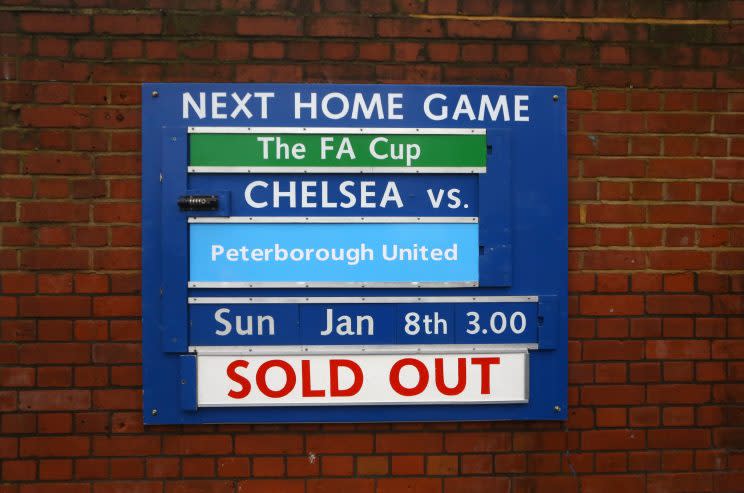The FA Cup now provides a welcome chance for a rest, not excitement

The FA Cup is not what it once was. That’s been true for a long time, and obvious for almost as long. The older fans and players have a sense of nostalgia about the competition, about the best game it produced, and lament that it used to be the traditional bookend to the season. Winning the FA Cup was not as important as winning the league, but it meant something significant nonetheless. Now, it’s more of a consolation for a manager on his way out, or a way for a mid-table side to experience some fleeting success.
There have been some sensible suggestions made in order to improve it, but even these are admissions of defeat. If replays were abolished, then it would expunge one of the main traditions of the tournament, the FA Cup replay. The replay that allows a lower league side to take a top division team back to their intimidating ground, or to make a trip to a Premier League stadium, with the money that comes with it. Preserving the FA Cup by removing one of its rare qualities is, in some ways, not preserving it at all.
Similarly, there is another proposed change, that winning the FA Cup should be rewarded with a Champions League spot instead of a Europa League spot. It’s not entirely clear whether this is a legitimate change in the eyes of UEFA, but regardless, it has merit. For Manchester United, after all, the Europa League is a more compelling competition this season now there is a more intense race for the top four in recent seasons. Getting into the Champions League, where players make their names and clubs make their money, gives the Europa League a new sense of import. The change to the FA Cup may do the same.
But that, too, isn’t a straightforward, positive change. By giving the FA Cup relevance this way, you admit that it is no longer relevant on its own terms. The glory of the FA Cup was that the team had won the FA Cup. The glory of the competition would be that it is a chance to play in a more culturally important and financially rewarding tournament in the following season. People remember Manchester United’s Champions League victory in 1999, they think much less of their second-place finish in 1998, unless they are Arsenal fans.
The League Cup perhaps demonstrates where the FA Cup will head. Rebranded to the EFL Cup, it nows reads as if it were produced for the television audiences outside of England. There’s nothing inherently wrong with that, but it is still fair to assume that English clubs should probably try to serve their own, match-going fans first. Television has added cash and armchair fans, who bring many positives with them, but the League Cup is now something to be endured and avoided by many.
As the League Cup became a practice opportunity for youngsters, so the FA Cup has become a chance for players to gain experience in the first team. As valuable as that is, fans are rightly less interested in watching teams prepare for the future. The Premier League is so full of money from top to bottom that it is simply not worth the clubs getting involved for fear of risking the health of their players. Avoiding relegation brings more in for the accountants than getting to Wembley. Higher up the league, there is no point in trying to qualify for the Europa League when a Champions League place is on offer.
This season, though, it might be slightly different. The top managers and clubs might have a slight sense of relief that this weekend is a cup tie, rather than the relentless grind of the league. For one, it feels as if we have come off the back of an exceptionally busy Christmas period, when there was even less rest than usual. The lack of quality in the Premier League, compared to half a decade ago, meant that teams like United and City called on their same best players. Chelsea did too, helped by more rest than others were afforded.
Chelsea have started to look sluggish and frayed as they came towards the end of their winning run. More goals were conceded, and they seemed uninspired in attack against Spurs. A rest for their under-rotated eleven might shake the fatigue. Alternatively, Peterborough are there to be beaten, and offer a chance to get back to winning.
At United, Reading might be a tougher tie, but it is nonetheless a chance to give Wayne Rooney an opportunity to get closer to his scoring record, and more importantly, Zlatan Ibrahimovic and Paul Pogba can have a nice lie down. Mourinho has used the League Cup in the past to foster a sense of success with his club, and as United are likely finalists, the FA Cup will hold little allure right now. As Michael Carrick and Antonio Valencia have again become essential, a week off for running repairs will be appreciated.
Spurs might have incredible fitness, but Mauricio Pochettino appears to believe his ambitions are set far higher than the cups. Even Arsene Wenger, who has used the FA Cup to mask his failings for a few years now, might concede that with the wheels coming off his season even earlier than usual, that the FA Cup is an indulgence – either way, this is a chance for a rest, or an opportunity to once again hide behind this trinket.
Liverpool, too, will probably swerve the chance to take meaningful part. As James Milner fills in on the left of defence, and Sadio Mane leaves for international duty, this is a squad that needs more players, not more strain. The FA Cup is a handy way for Mane to at least miss a game that doesn’t really matter.
That is where the FA Cup is. As people fiddle with the rewards, all in an effort to change its standing by artificial means, it is perhaps only now being anticipated by managers. As the top teams rush towards Europe, and everyone else tries to avoid relegation, the cup weekend has come as a welcome break. A depressing, but inevitable consequence.


